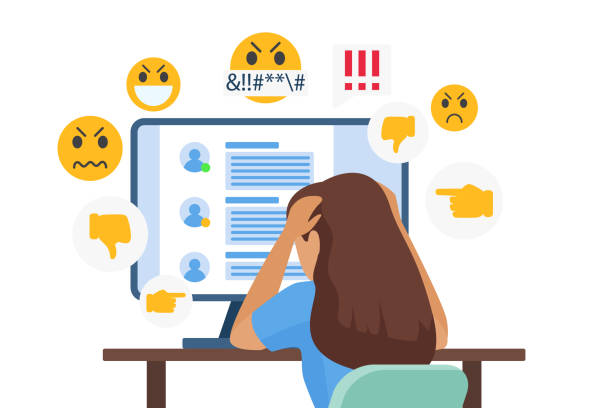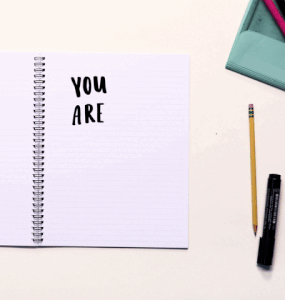Parenting(Age 5 to 8) | Academic | General | Parenting(Age 9 to 12) | Parenting(Age 13 to 16) | Feb 07, 2022
For What Reason Do People Succumb to Peer Pressure?

When children give in to peer pressure, they usually do so for several reasons, such as being liked, fitting in, or being afraid of being teased if they do not conform to the group. Other people go along because they are curious about trying something new that others are doing. Children may be influenced by the fact that "everyone's doing it" to abandon their common sense, or to follow the crowd blindly.
Taking the High Road Against Peer Pressure
Being the only one to refuse peer pressure can be challenging, but you can do it. Knowing what is right and wrong can be learned by paying attention to your own feelings and beliefs. Self-confidence and inner strength can help you resist doing something wrong, walk away, and stand firm when you have to.
To be able to say "no" in the presence of at least one other peer or friend is useful. Then peer pressure is much more difficult to resist, as some of its power is taken away. If you do not want to do something, you can count on friends who share similar values to back you up.
Most likely your parents or teachers have said "choose your friends wisely." Peer pressure plays a big role in this advice. Even if all your friends use drugs, snitch on their teachers, smoke cigarettes, or lie, if you choose friends who do not do these things, you are unlikely to do those things as well. If you know someone who is struggling with peer pressure, help them. Simply being able to say, "I am with you, let us go together," can be one of the most powerful things a kid can do.
If you are alone and are facing peer pressure, there are still things you can do. By staying away from peers who pressure you to do things you know are wrong, you can avoid peer pressure. By telling them "no" and walking away, you can limit your exposure to peer pressure. If you want to avoid peer pressure, find other classmates and friends to socialize with.
If peer pressure continues to affect you and you are having a difficult time dealing with it, you can talk to a trusted adult. If you make a mistake or two, don't feel bad about it. You can feel much better and be better prepared to handle peer pressure in the future if you talk to a parent, teacher, or school counselor.
Peer pressure: Identifying and understanding it
It is much easier to deal with anything when you have knowledge about it. In this case, peer pressure plays a big role as well. Understanding what it is, understanding why it happens, and learning how to spot it can equip students with the skills to deal with it more effectively.
Peer Pressure: Dealing With It
Throughout their lives, our children should be able to build healthy and meaningful relationships, both in their personal lives and at work. By showing love, being supportive, and having open communication in the home, we prepare them for this. The adolescent years are the times when our teens begin to have relationships outside their homes. Having relationships outside of their homes will help them to become independent adults. It is important for parents to prepare teens with the social skills they need to make good decisions independently and avoid peer pressure as they navigate peer culture.
Teenagers can develop an endless amount of skills through peer interaction. You will need these skills in order to work effectively with people, to form meaningful friendships, and to be compatible with your partner and your family. Besides peer influence becoming increasingly influential during adolescence, parents continue to play an important role. Parental guidance is one of the ways parents can ensure teenagers are successful socially. Educating them about saying "No" effectively, including how to state their position clearly and stand their ground while maintaining relationships is part of this process.
Despite how much we would like to be able to teach our children to say “no” when it comes to being friends with people who behave badly, that is not always possible. There are young people who are more concerned about keeping friends at the expense of their values. Everyone has different values throughout their lives, including their coworkers and friends. The challenge of raising teenagers includes helping them develop the skills of being clear about their values and interacting with people whose values may differ from theirs.
- Don't be stingy with your Nos
Teenagers and tweens should only say no when they mean it. The word "no" should always be taken seriously. A no should not ever be taken as a maybe. And you can always be unsure. When they are uncertain, they should be prepared to say, "I am not sure," "I think I will think about it," or "I need to think about this." If they seem uncomfortable, be clear and firm that the answer is no. Negotiation is out of the question. Teenagers should clearly state their positions without negotiating, but without being confrontational either. "No" is a perfectly acceptable response.
- Keep your body language in mind
Teens should be reminded that words play a small part in the stories we tell. What we communicate through our body language is just as important. When you smile and lean in to someone while saying no, you could send the wrong signals. Body language communicates no more clearly when you remain calm, stand your ground, and make eye contact. There are times when a better strategy is to simply walk away and distance yourself from trouble.
- Provide alternative options
It is common for teens to hesitate to say no because they are worried that they will not be accepted by their friends. We all do not want to look like we are judging our friends' choices or appear as though we are the odd one out. Provide alternatives to teens to make them feel more comfortable. When peer pressure is being applied to ditch class with a friend, the teen can reply "I am going to class." However, I will meet you after school to play basketball."
- Reiterate Values
Teenagers who make choices that are right for them and stick to them are expressing their values. The things that may be acceptable to one may not be acceptable to another. Let your teen know that he or she is an individual, making his or her own choices. They are the ones who should decide what they value (not their friends). We as parents have the responsibility to set clear boundaries that keep our children safe and guide them towards healthy values that they will choose to follow later in life.
- The importance of practicing
Teenagers gain confidence in their ability to use new techniques in a real-life situation when they can practice new skills.
It is obvious that playing a role in practice is the best way to learn to say no. Provide your teen with a variety of possible situations during a set-aside time. When they arrive at the party, they find that their parents are not there. In addition, they are offered a ride by someone who appears to have had too much to drink. Ask them how they would respond to your sample situations once they have had time to think.
- Teachable moments should be found
Young people can feel too much pressure when playing role-playing games. A fictitious example from a TV show or a movie can serve as an alternative. Think about how your teen might have responded to a similar situation when you encounter a teachable moment. In a car or riding around in a group, you may witness real life situations on the streets around you. Consider how the kids you pass should handle a particular situation and describe what you notice to your teen. By using these skills, teens can develop their abilities without becoming too self-absorbed.
- Exhibit clear communication of NO
In addition, model your own body language and words so that you make your no clear and definitive. Don't be aggressive but just talk about how you see the world differently. Tell them you are teaching them, but do not put it in the forefront. Instead, let it flow naturally. Watching us, our teens gain "practice" without experiencing any pain through our life experiences and modeling.
- The parents are to blame
There is nothing more important than the ability to save face in front of friends when all else fails. It is common for teens to say "blame parents" to get out of pressure to engage in activities they do not want to participate in. An alcoholic teen may refuse to drink alcohol if she or he feels pressured to do so. The smell of alcohol will be obvious to my mom since she waits for me at home. She will ground me for life."
Code words give you another chance to save face and escape from an awkward situation. Parents and teens agree on the practice in advance, so that when teens use it, their parents demand that they come home. As a result, the teen can tell his friends, "Sorry guys, I have to go.". "My Dad is forcing me to return home."
Want access to expert academic guidance — for free? When you create your free Vnaya account, you will have an option to ask a Question, Book a Demo session, talk to our Academic Experts, and get Professional Parenting Support —all for Free! Our Academic Counselor will help you learn how to improve your academic performance by assessing your learning style and curating a personalized lesson plan for you!
Sign up for your Vnaya account today to get a boost on your academic quest.
















Post a Comment: